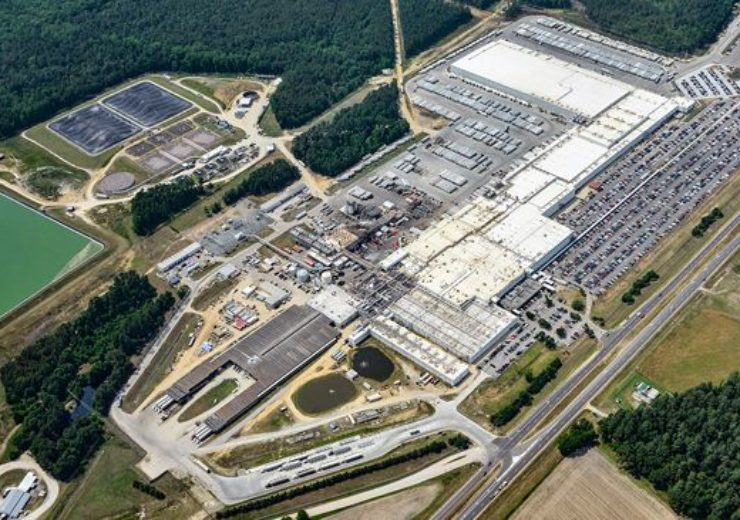The converted RNG is injected into the Piedmont Natural Gas system, and transported to Duke Energy for producing electricity

Smithfield Foods generates renewable natural gas from wastewater (Credit: Duke Energy Corporation.)
Smithfield Foods, in partnership with Duke Energy and OptimaBio, has started producing renewable natural gas (RNG) from the wastewater treatment system at its Tar Heel pork processing facility.
Smithfield said that its new $14m RNG production project would help in supplying power for more than 2,000 homes and businesses in the region.
Smithfield Foods president and chief executive officer Kenneth M Sullivan said: “This project brings to life all three of our company’s guiding principles – Responsibility, Operational Excellence, and Innovation.
“For the first time, we are creating renewable energy from the biogas generated in our wastewater treatment system and using it to power local communities. With the help of our partners, we are producing additional value for our company and our neighbors, a concept that is ingrained in our culture.”
Smithfield Renewables is a platform to reduce greenhouse gas emissions
The RNG project is the latest from Smithfield Renewables, which is Smithfield’s platform to accelerate its efforts to reduce greenhouse gas (GHG) emissions 25% by 2025.
Smithfield said that it aims to produce approximately 140,000 dekatherms of RNG per annum, and supply to natural gas plants and generate electricity for consumers, through its collaboration with Duke Energy.
OptimaBio, a bioenergy project developer, will operate a gas upgrading and injection system at Tar Heel project, which enables the wastewater treatment system to collect and clean the biogas through a prevailing digester and convert it into RNG.
The converted RNG is injected into the Piedmont Natural Gas system, and transported to Duke Energy for producing electricity.
The project is expected to help Duke Energy meet the state swine waste-to-energy mandates, according to the North Carolina’s Renewable Energy and Energy Efficiency Portfolio Standard law.
OptimaBio CEO and founder Mark Maloney said: “We are proud to partner with Smithfield on this project, which has far-reaching and positive impacts for the environment, the local community, and industries that are key to the state’s economy. We’re helping diversify and strengthen North Carolina’s renewable energy portfolio through this endeavor.”
